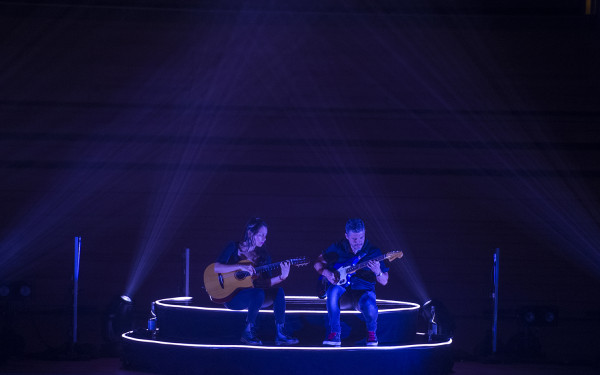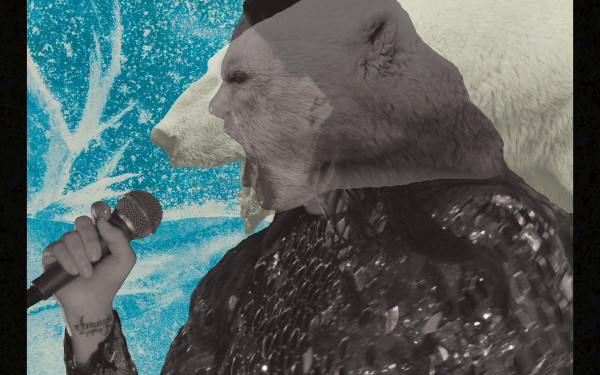Contemporary Throat Singer Improvises a Harsh Vision of Canada
A Review of Tanya Tagaq’s Boundary-Breaking Performance
Tanya Tagaq is a transformative performer. She herself transforms. Her music transforms. And, by the end, her audience transforms.
The transformations began when Tagaq—an Inuk from Cambridge Bay—came onstage at Club Soda. She may have been a small soft spoken woman, but she had no interest in saying small things.
She wore a vivid red dress for missing and murdered Indigenous women. Sewn into its chest were the birthstones of the women in her family—as she puts it, her “matriarchal lineage.”
It was a political show, appropriately. Her very presence onstage—between Canada Day on July 1 and Nunavut Day on July 9—was political. Retribution, the album she and her band and choir improvised around, is explicitly political.
“Our mother grows angry,” goes the album’s title track, which Tagaq worked into the performance as a roaring manifesto over the sound of churning industrial noises and a chittering choir, about two-thirds of the way through. “Retribution will be swift.”
Is she this vengeful mother? Is the Earth? Is this mother all of the women erased by a society Tagaq refers to simply as “it”?
Tagaq deliberately embodies those women on one of the only other songs in the show with English words. It’s called “Rape Me.” In three verses she tells a “friend” to rape her, hate her, and beat her in a truly child-like voice. Tagaq does not care if her audience is comfortable. In fact, she wants the opposite.
The music follows as the themes get more hellish. The show starts with nature-evoking ambiance from effect-stacked violin, guitar, and drums—which, on its own, is a commentary on how much artificiality it takes to create a facsimile of the natural. It gets more twisted, distorted, and disorienting as Tagaq progresses from throat singing to an ongoing mix of styles of vocal expression.
She effectively becomes characters, carrying them in her voice and her posture, aided by eerie, flickering backlights. Her throat-voice pitching low to a tectonic, percussive rumble, she crouches on the floor and seems to be a demon feeding on the Earth. Embodying a struggle between an abuser and a survivor, she alternates between screams for help and bubbling, cruel laughter.
And it just keeps going. Climax after climax, conflict after conflict, Tagaq and her musicians build a musical architecture of trauma and then tear it down, using the pieces to build an even more brutal vision, only to repeat the process.
The choir, too, is transformed into nothing at all like a choir. From birds in panic, to mindless moans, to whispers of “help,” the group of around 25 is a vivid addition to the performance.
At one crescendo, the choir swells alongside the instruments like a metallic, grinding scream. A technic earth splits in two and out pours the mangled cry of an abomination in the throes of transformation.
Tagaq takes what we know, twists it beyond the recognizable, then sends it back at us, multiplied to the power of our expectations. All while improvising.
At the end of it all, after guiding us through harrowing and enlightening terror, she then shows that she prevails. She struts to the front of the stage, along with her matriarchal lineage, and with a long, loud, howl, affirms her presence. She’s still here. They’re still here.
But that’s not the real ending. The real ending is when she comes back onstage and sees a man hoisting a Nunavut flag on the balcony. She cheers, and asks if there are any throat singers out there. There are two. She invites them onstage, and they come. Face to face, locking eyes, leaning forward, they sing. Tagaq watches, and smiles.



